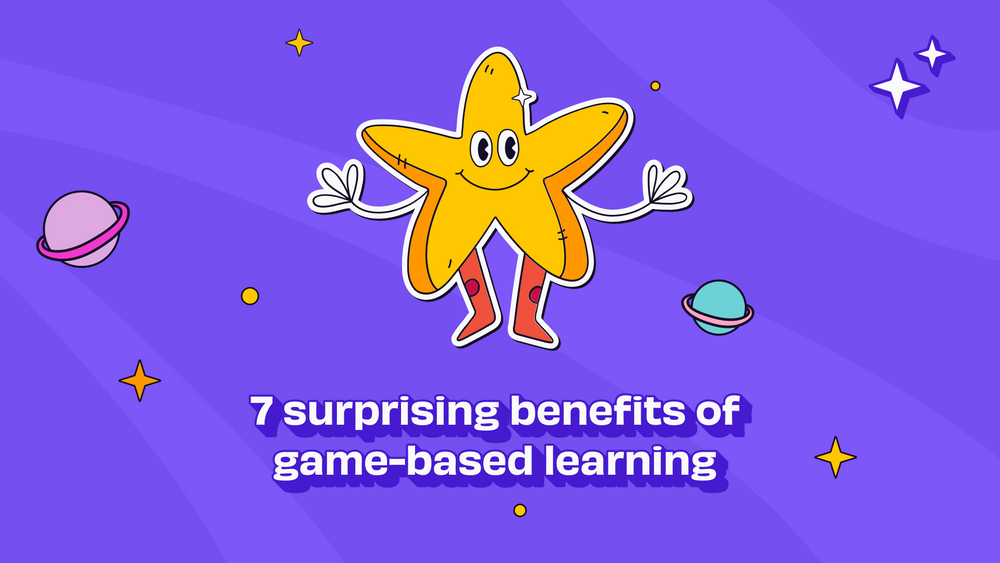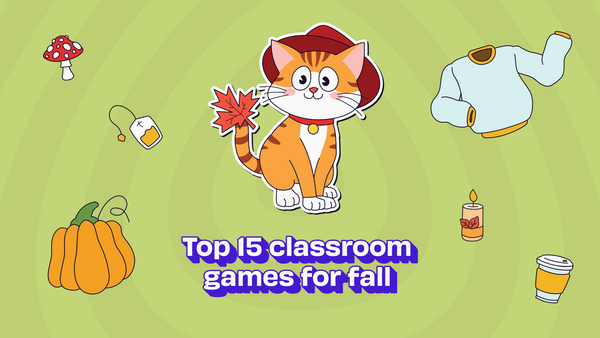7 Surprising Benefits of Game-Based Learning
Despite what tiresome traditionalists might tell you, school doesn't need to be a humdrum slog—and no one wants to be bored, no matter how old they are (or what they're learning about!).
Over the past few years, game-based learning has swiftly started to emerge as an excellent way to get students thinking and engaging. It's becoming a very popular (and very effective!) way of teaching new topics and skills.
So in this speedy blog post, your good ol' friend Baamboozle is here with our 7 favorite benefits of game-based learning. We've covered surprising stats, unexpected outcomes, and a few of our most popular games.
No more mid-class yawning, no more insipid inspiration, and no more dispirited students. Step aside Miss Trunchbull, this one might just get enjoyable!
1. Game-based learning is fun
Alright, you all knew this one was coming—so let's get things started by covering the most apparent advantage…
Game-based learning is fun, and students (we know we're stating the obvious here) like having fun. If you can get your learners laughing and enjoying themselves, they'll pay attention and engage. And when they pay attention and engage, they're much more likely to actually learn something.
On top of that, students are chronically competitive, with an in-built passion for mercilessly decimating their peers. Get students competing, and you get them focusing.
Best of all, game-based learning is usually fun for teachers too (although you don't need to admit that to the students, obviously—you have a reputation to maintain!). When you've been toiling hard all day, playing a game or two can be a nice little change of pace.
2. Game-based learning improves memory
Let's be honest: on the whole, students aren't particularly good at remembering all the stuff you tell them, especially when they're bombarded with endless information every day.
But games can get children recalling and remembering much more effectively than mundane rote-learning methods. According to some research, even video games are good at improving memory skills!
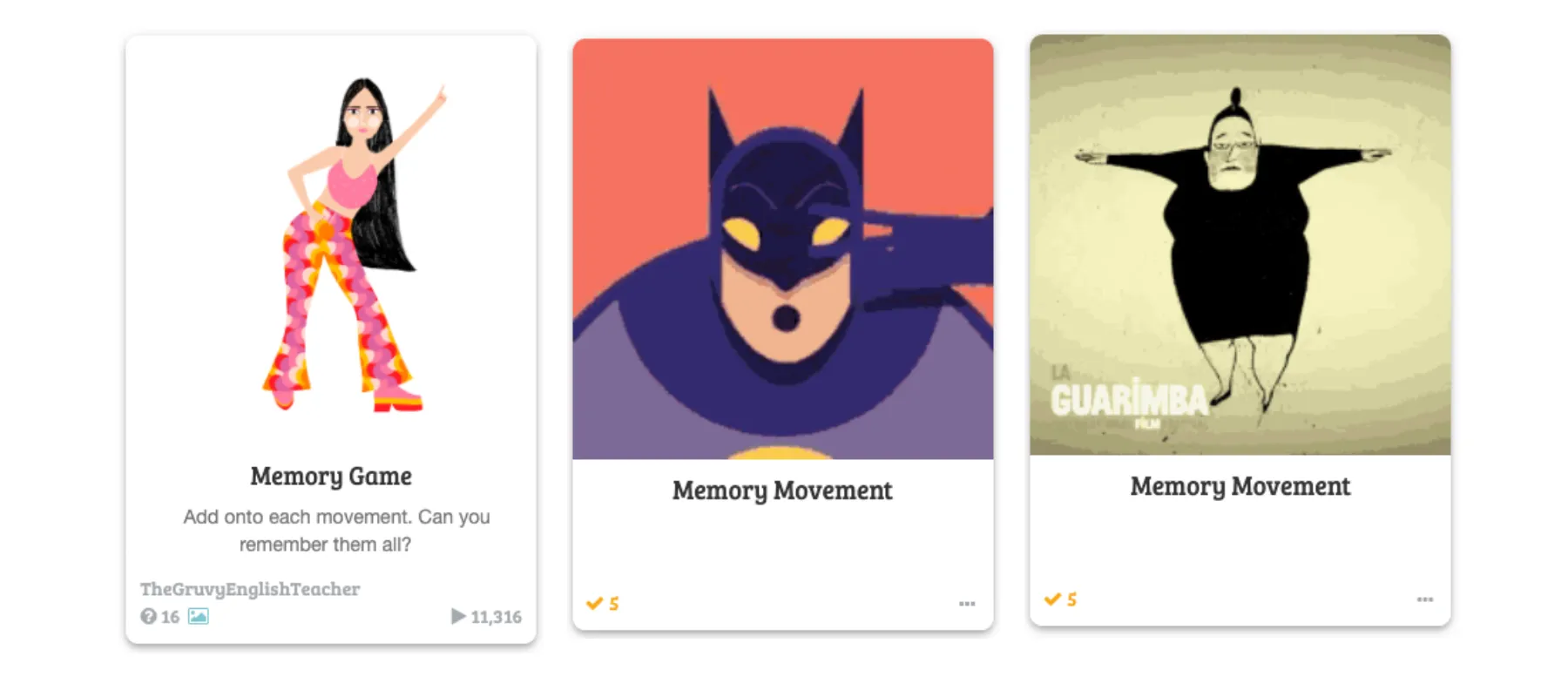
A quirky little movement game like this one can promote memory in a fun, unusual, and active way, helping students strengthen their ability to recall. If you use games like this alongside the important stuff you're teaching, your students will be much more likely to remember what they've learned.
A better memory is hugely beneficial to in-school success both short-term and long-term.
Learn more: Getting Physical with Baamboozle: Benefits, Tips & Tricks
3. Game-based learning teaches team-building skills
If students can learn to cooperate during games, they can get better at cooperating in the classroom.
When students regularly play team-building games, they're much more likely to be civil, polite, and respectful in the future. That helps them to get further in life, and you to get further in the classroom.
Let's say a troublesome student is being obnoxious and unhelpful in a team game, like some sort of maverick double agent with an appetite for sabotage. During the game, that 's behavior will lead to failure—so they will subconsciously learn that this type of behavior will also lead to similar failure in real-life scenarios.
Nuanced social skills are just that: skills! But you can help your students to learn these skills by encouraging lots of cooperation, team play and working together.
4. Game-based learning gets students following the rules
For unruly little ones, this is one of the biggest benefits of game-based learning.
In games, every action has a consequence, and every choice has an outcome. When students learn this, they also learn to apply that same logic to life. And then they learn that logic in life, they're more likely to be obedient, fair, and patient in the classroom.
When students realize that rules are actually beneficial (and not just some arbitrary nuisance concocted by an irritating teacher bent on the banal!), they're much more likely to respect and obey those rules. By using games, you can encourage students to be disciplined without shouting and screaming at them, and chasing them around the classroom with a yardstick.
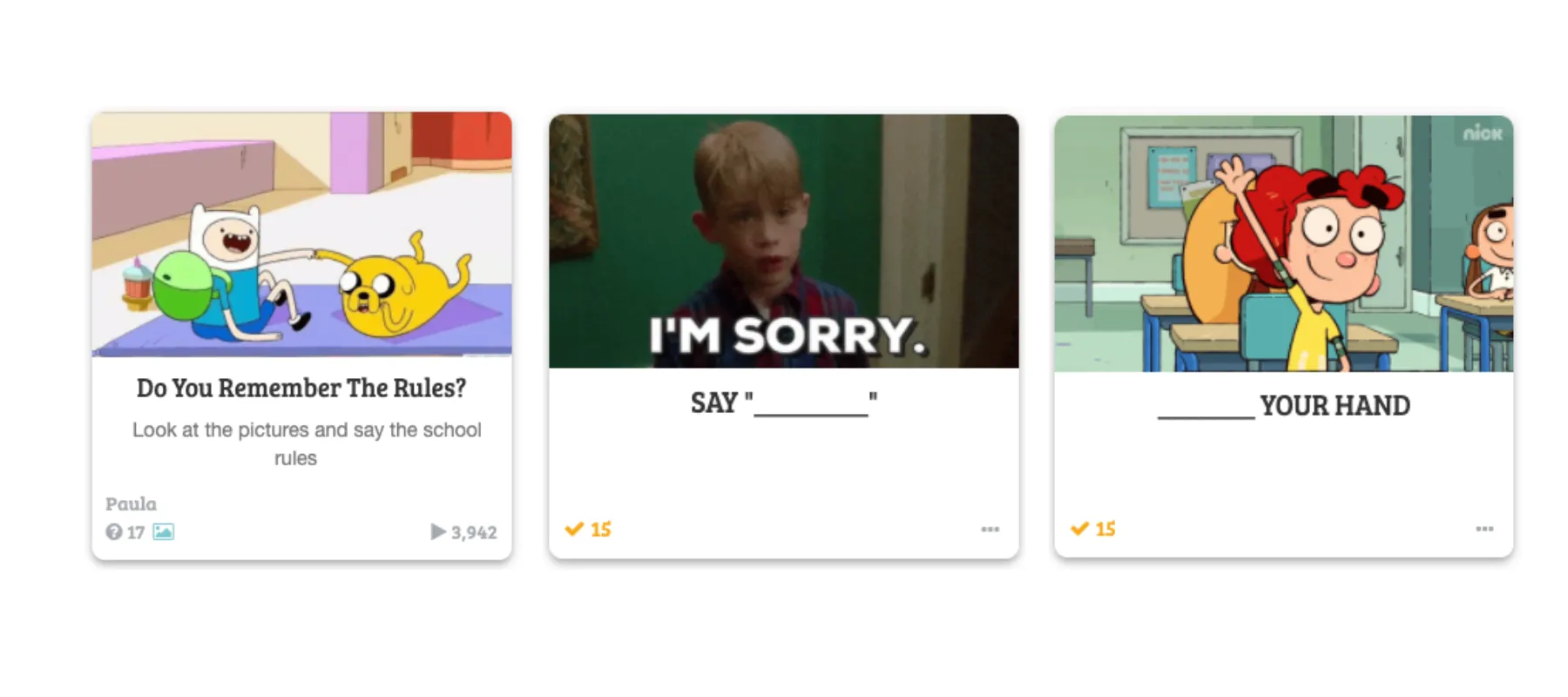
Simple but effective games such as 'do you remember the rule' can even get students learning specific school-based rules while playing games. Win-win!
If you're tired of rebellious students hijacking the classroom, games can be a perfect little remedy.
5. It helps students to detect patterns

With some simple games, students can observe easy-to-pick-out patterns, then use those patterns to plan ahead.
To use a simple example, if students play this game before a math class, they're primed and prepped to swiftly adapt to multiplication tables, or algebra, or countless other things.
Or more abstractly, students who use a game like this are learning to spot and use simple patterns in order to make future predictions.
These games help children to identify patterns while thinking both logically and analytically—and to develop their ability to keep doing those things in the future.
6. Game-based learning teaches resilience
Usually, you don't conquer a game on your first try.
Similarly, in the chaotic little dance we all call life, you don't get things right the first time either.
Children haven't yet learned that second harsh reality. But we can help them to overcome their enviable naivety with the help of some simple games!
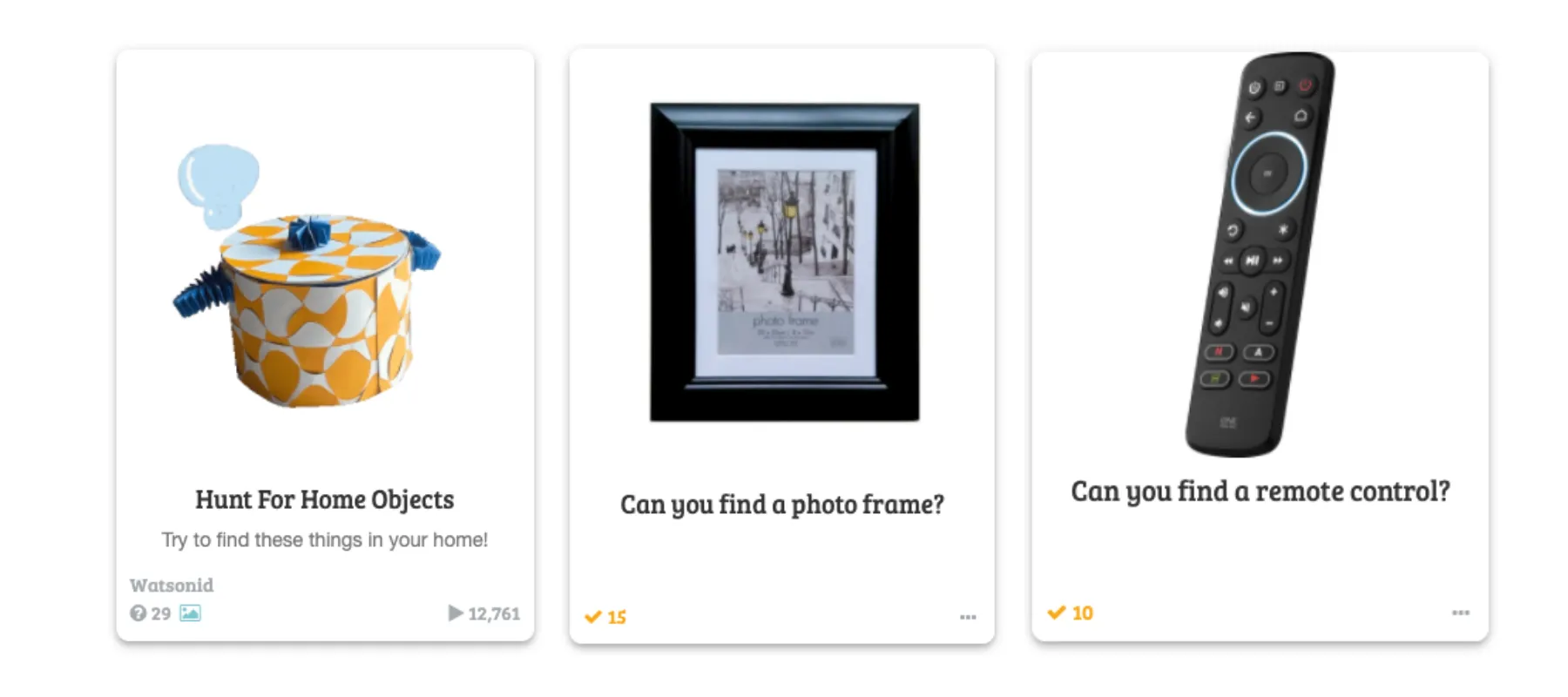
When kids regularly play games, they become resilient and persistent in their quest to beat the game and usurp its sneaky drawbacks. Give some homework such as this object-finding game, and you're rewarding students for their persistence and adaptability, even in everyday scenarios.
7. Most teachers agree that game-based learning works
Okay, this one isn't really a benefit, but it's an interesting insight anyway (hope you can forgive us!)
Teachers from around the world are beginning to observe and understand the massive benefits of game-based learning.
In this study, 15 primary school educators were interviewed regarding their opinions on game-based learning. 90% of them expressed "positive feelings toward game-based learning" and acknowledged the "positive impacts of employing game-based learning." And many more studies are returning similar responses and results.
Likewise, the countless teachers who use our platform agree that, since using Baamboozle, their lessons have become much more fun, productive and interesting—and easier to plan!
At Baamboozle's madcap headquarters, we're constantly researching the best ways to get students learning—and the best simple but sensational games for getting children to focus, explore and absorb. We have a bank of over 3 million different games, and they're all crafted by experienced teachers from around the world.
We release new games all the time, so you never need to reuse the same old stuff. And best of all, they're all ready to play right away, with no need for specialist equipment or unnecessary planning. We even have lots of ideas on topical games for seasonal fun!
No matter who you're teaching, what they're learning, or the needs they have, we'll have something perfect. Try some of our endlessly-diverse games for yourself, and see if you and your students start reaping the rewards.

